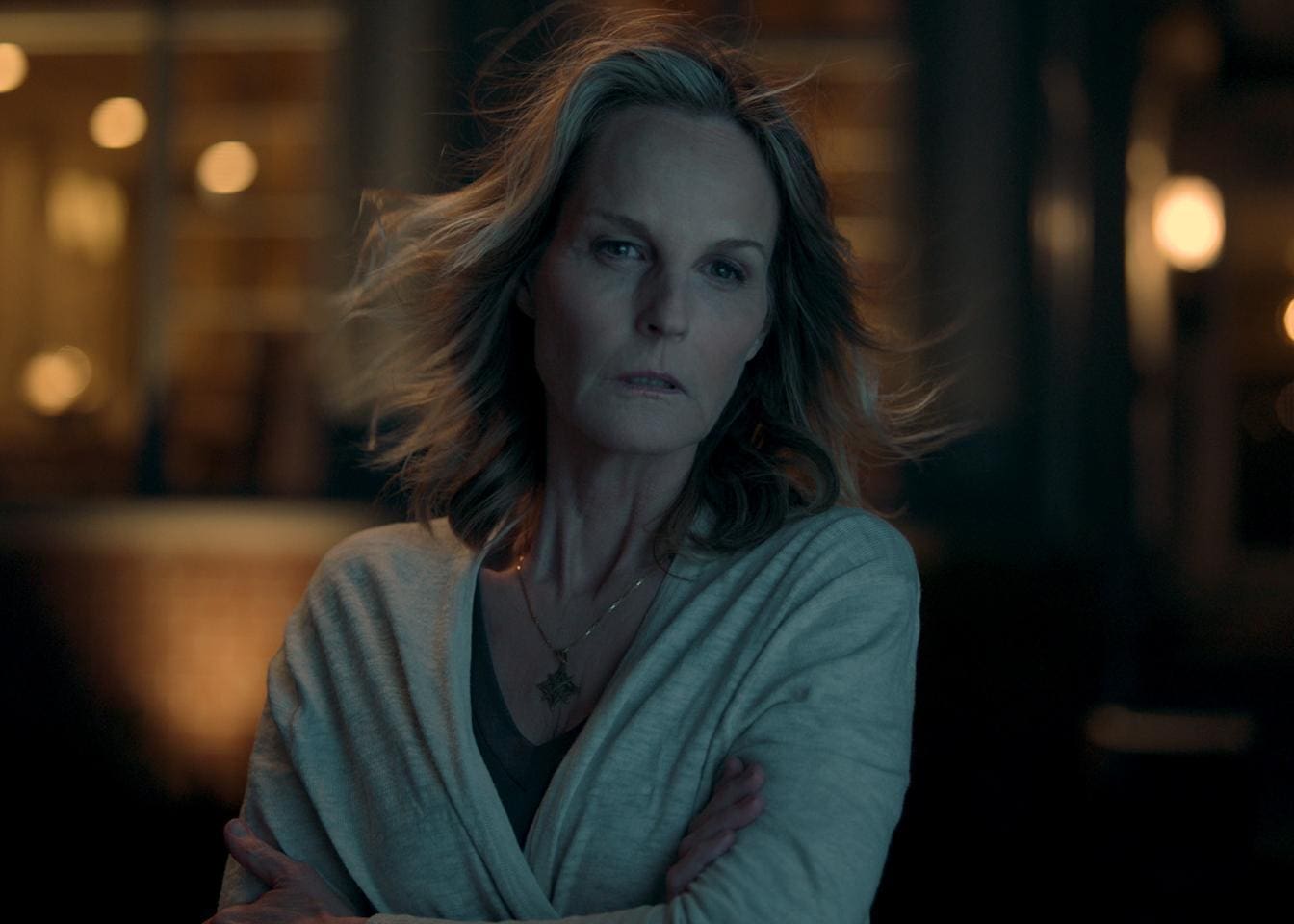
Before I entered the midnight screening of I See You, I joked that it’s going to be a play on I.CU. — or Intensive Care Unit — putting everyone in a haunted hospital something. I won’t say I was completely wrong. There are plenty of injuries but no one steps foot in a hospital. Nothing can prepare you for what’s about to go down over the next hundred minutes in not one but the movies that comprise I See You.
While it is technically just one movie, it is cut into two distinctive pieces. The first tale is a ghost story that gets an Ohio town worried when a 10-year-old goes missing in the woods, but further within is a domestic tale of an affair’s effect on the nuclear family. It feels rushed yet could use a good trim, never allowing its characters to fully develop. The performances feel like strangers living with each other — what could be an effective direction if more precisely designated — and ramp up to a level where all nuance is abandoned.
Helen Hunt gives a solid effort as Jackie, a doctor who recently had an affair with a former high school flame. But her subdued approach only goes so far, trying to earn approval back from her son Connor (Judah Lewis) who’s more distraught about her affair than his dad, Greg, a detective who’s been put on the case involving the missing boy from town.
At the same time Greg is searching for clues surrounding his new case that begins to look like a copycat of a case from 15 years prior, Jackie’s own mystery unfolds. The silverware is completely missing, the record player randomly starts playing, her favorite mug is missing and later falls on her estranged lover from the roof. Later on, Greg wakes up in a wet bed, is locked in a closet when no one else is in the room, and he also hears music playing out of nowhere.
Is it all Connor in an act of rebellion? Could it be paranormal activity? Both are logical conclusions director Adam Randall leans into, especially with the cold open showing a mysterious force taking away the kidnapped boy. But soon after Jackie has to tend to her injured friend with benefits, a third option enters the mix and changes the entire movie, essentially turning into a whole new movie starting from the beginning.
This is the movie you want to watch, a deep, intimate look into the lives of others that provides all the answers to the first act. It’s just a shame the second half doesn’t work without the first half. They feed off each other, but the second portion is the far more enjoyable and intriguing half featuring what some medical professionals would classify as severe whiplash. Trauma care might be involved for anyone watching (Maybe I was onto something with the I.C.U.!)
Not much more can be discussed without spoiling it. Though, even if you learn about the shift in the point-of-view, there’s more you can dig into and look back in retrospect. Even the sound design and music begin to provide hints in retrospect. Screenwriter Devon Graye layers in enough into the second story to maintain engagement but as with the first half, struggles to arrive at developing with urgency to sink his teeth in deeper.
As a result, I See You largely works because of its “gotcha” moments and would otherwise be a forgettable, exhausting experience that takes itself too seriously. As it stands, it’s a success full of ideas that just don’t know how to fully work together but its unique POV and misdirection makeup for squandered potential.
Rating: 6 out of 10
I See You premiered at SXSW and will be hit theaters soon.

